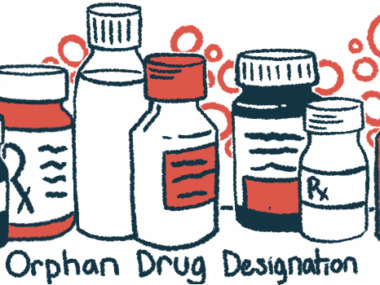Medicovestor’s pancreatic cancer therapy named FDA orphan drug
ADoBind MC001 designed to trigger immune system to attack, kill cancer cells
Written by |

The U.S. Food and Drug Administration (FDA) has granted orphan drug designation to ADoBind MC001, an experimental treatment for pancreatic cancer that’s being developed by Medicovestor.
The designation gives extra economic incentives for companies developing treatments for rare diseases or conditions that affect fewer than 200,000 people in the U.S. Therapies granted the designation get a guarantee of seven years market exclusivity if they are ultimately approved.
“We are proud to receive Orphan Drug Designation for ADoBind MC001,” Seah Lim, MD, PhD, CEO of Medicovestor, said in a company press release.
Designed to deliver cancer-killing medications directly to cancer cells
ADoBind MC001 belongs to a class of therapies called antibody-drug conjugates, or ADCs. Antibodies are proteins made by the immune system that are able to stick to a specific molecular target with high affinity. The idea behind ADCs is to take an antibody that targets a molecule on cancer cells and attach it to a cancer-killing drug. In this way, ADCs are designed to deliver cancer-killing medications directly to cancer cells.
According to Medicovestor, ADoBind MC001 goes a step beyond the conventional setup for an ADC because the antibody used in this experimental therapy doesn’t only deliver a cancer-killing drug, but is also tailored so that it can trigger the immune system to attack and kill cancer cells.
The antibody specifically targets Folate receptor alpha (FRalpha), a protein that is expressed at moderate-to-high levels in most pancreatic cancers. When ADoBind MC001 binds to FRalpha on cancer cells, it induces the cells to express more FRalpha protein, which should allow the therapy to bind to cancer cells more easily and more efficiently deliver the cancer-killing drug.
The FDA’s decision to grant orphan drug designation to ADoBind MC001 “underscores the potential of our platform to push the boundaries of what ADCs can do — especially in cancers that have historically resisted treatment,” Lim said.
Medicovestor is currently conducting preclinical research that may support an investigational new drug application, which is a formal request to the FDA asking for permission to start clinical testing of the therapy in people. The company said it hopes to start a Phase 1 clinical trial in early 2026.




